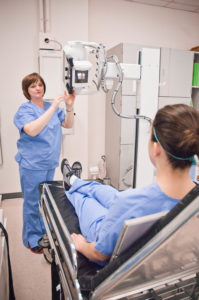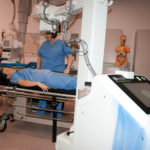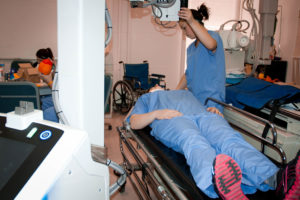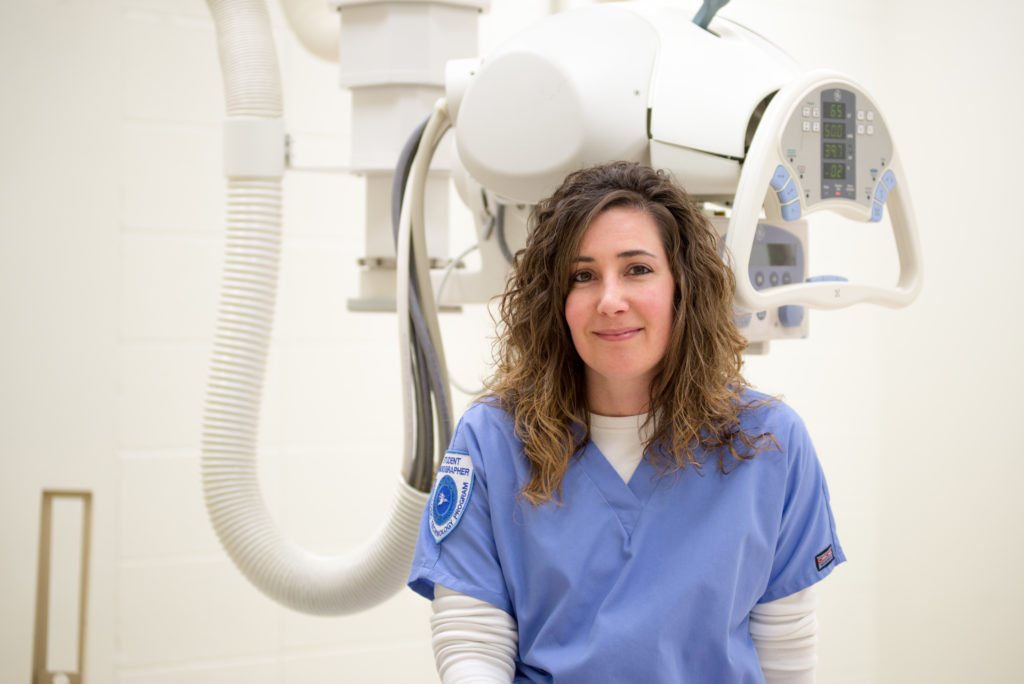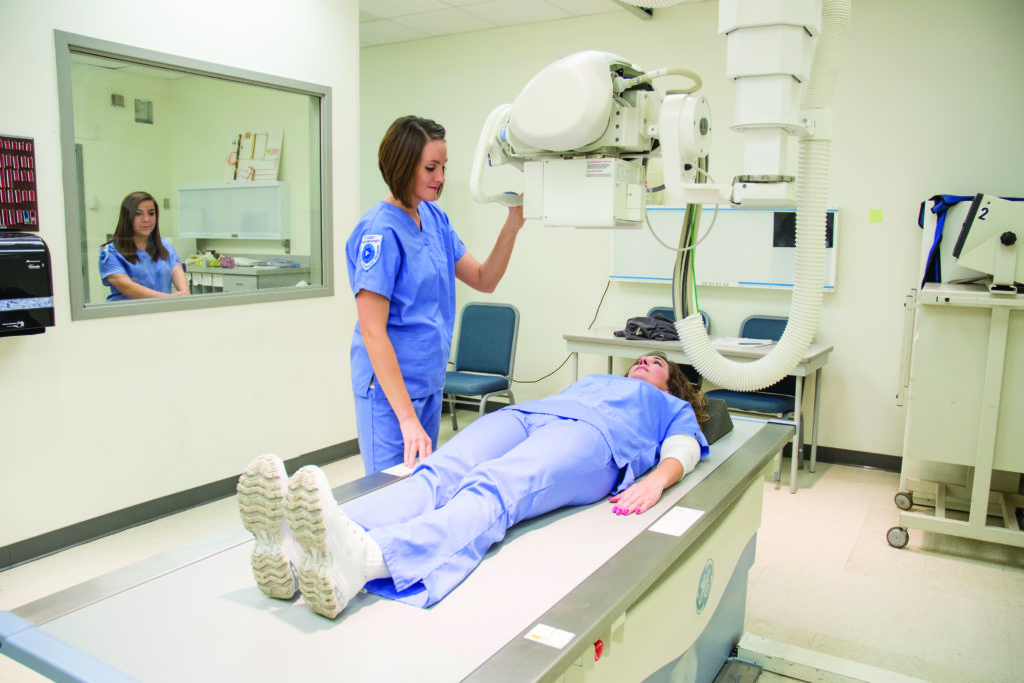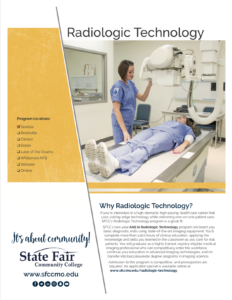We teach you basic diagnostic imaging skills so you can graduate as a highly trained, registry-eligible medical imaging professional ready to enter the workforce, learn advance imaging technologies or transfer into a bachelor’s degree program.
State Fair Community College Radiologic Technology Program is fully accredited through JRCERT and follows the ASRT curriculum to prepare students for the ARRT national registry, however, some states may have licensing or educational requirements beyond the national registry in radiography. Please use the following link to see all of the current state licensing and educational requirements:
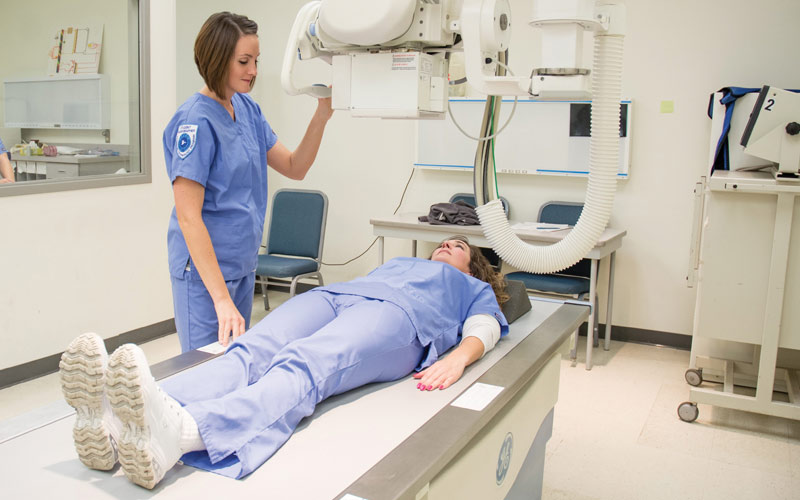
Is This Program Right for Me?
Common abilities needed for this program include compassion for others; critical thinking and reasoning skills; a responsible, professional attitude; interpersonal communication skills; the ability to read and comprehend written information; and a willingness to learn new technologies.
SFCC also offers advanced imaging training through online Computed Tomography (CT) courses and Mammography conferences. Second-year radiography students, technologists or people interested in expanding their knowledge base may apply. Admission to CT training requires an additional application.
Occupational Outlook
Radiologic technologists are needed in every health care setting, from large hospitals and suburban outpatient clinics to rural physicians’ offices. Starting salaries in Missouri range from $62,270- -$66,480 and increase with specialization and experience.
(source – www.mynextmove.org)
Data Sources – The website mynextmove.org, which is developed and maintained by the National Center for O*NET Development, under the sponsorship of the U.S. Department of Labor’s Employment and Training Administration, and the Missouri Economic Research and Information Center (MERIC).
Admission to this program is competitive, and prerequisites are required. This program starts in August. The application deadline is March 1st or the 1st business day of March.
Tour the Facilities
This program is offered at the Sedalia campus. Take a tour (below) of the facilities located in Sedalia.
